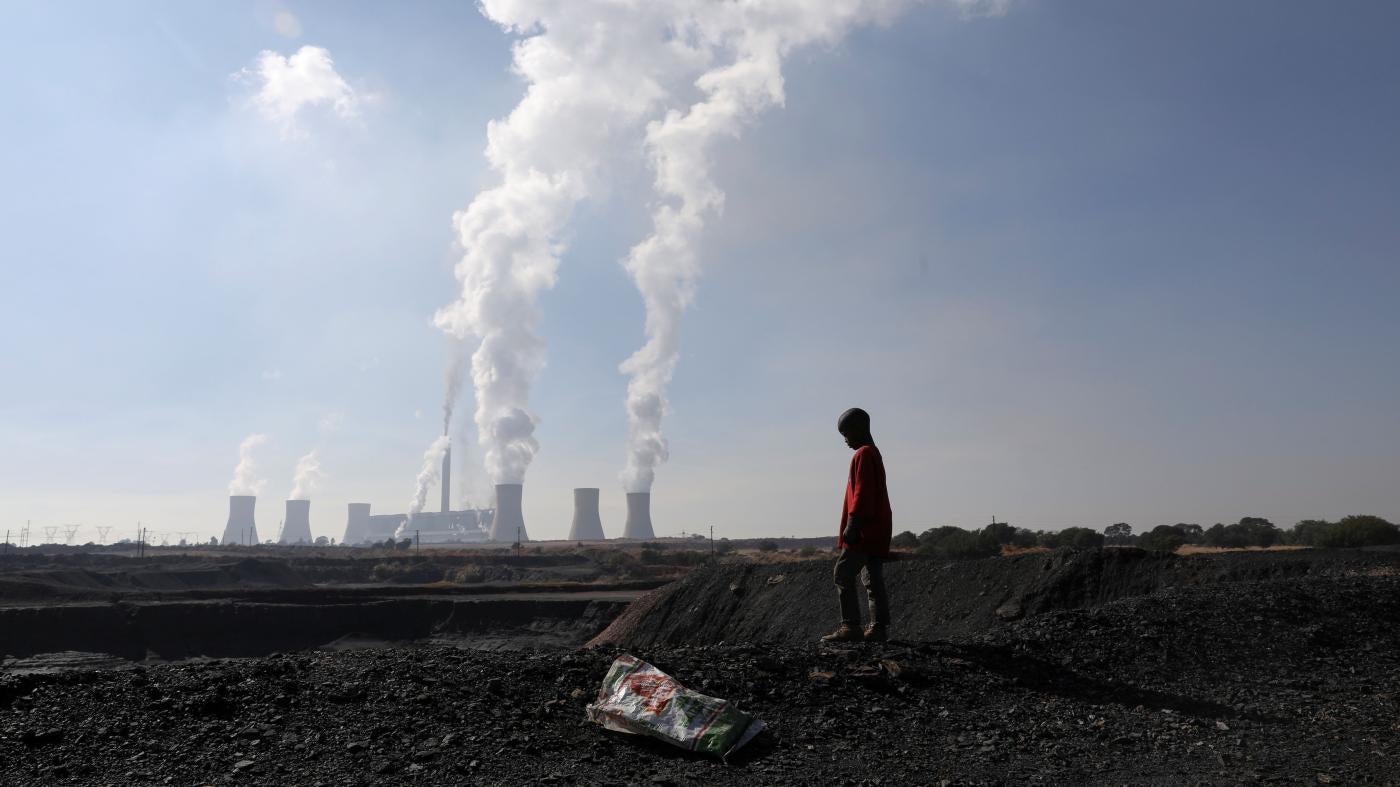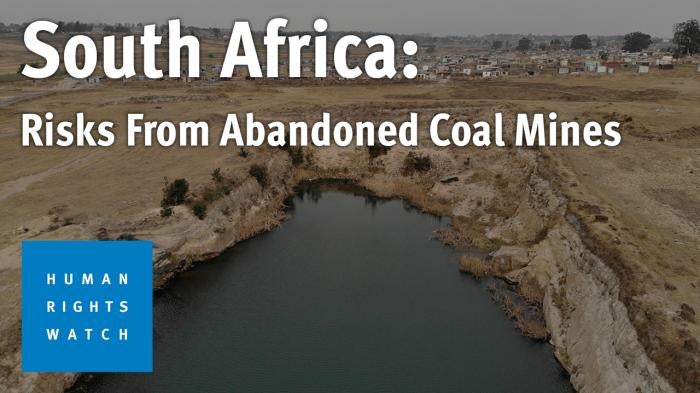How big a problem is this?
This is a very big problem in South Africa. There are more than 6,000 abandoned mines in the country and approximately 2,322 of these have been identified as high risk, including coal mines. That means they pose an immediate threat to the communities surrounding them, and yet little or nothing is being done to rectify this.
When a company opens a mine, they are required by law to set money aside to ensure that when the mining stops, the mine can be decommissioned to appropriate standards. In practice, this cleaning up of mines simply isn’t happening. There is no profit in making a decommissioned mine safe and lots of companies simply abandon them and move on. The government is doing very little to enforce the laws around decommissioning, so companies have little pressure to change their ways.
Your report focuses on coal mines in particular. Why is this?
In order to meet climate change objectives, governments, including South Africa, have to stop burning fossil fuels. Coal is the dirtiest and most heavily polluting of these fuels, responsible for 20 percent of global emissions. While transitioning away from coal is a good thing, rehabilitating coal mines should be part of the conversation about how the transition happens as there are significant risks for communities living in the shadow of abandoned coal mines. As we’ve seen in South Africa, when bigger companies look to sell their coal assets, those assets are more likely to end up in the hands of companies who either don’t have the financial resources to rehabilitate a mine, or who see it as an unnecessary financial burden. This increases the likelihood that these mines will become abandoned.
But there is also the ecological damage that coal mines pose for surrounding communities, which is another reason our research focused on coal. Coal mines are incredibly toxic, and it isn’t uncommon for acidic water, laced with heavy metals, to escape the mines and leach into the water table. This is something we have documented in our report, and it is having a devastating impact on local communities.
It isn’t just coal mines that are posing a problem, but hopefully this research might contribute to a wider conversation about how the South African government addresses the important issue of abandoned mines more broadly.
Can you tell me more about the impact these mines are having on communities?
The risks these mines pose are far reaching. Obviously, the most worrying fact is that water resources are being poisoned. This not only makes the water unsafe for human consumption, but can also poison the land which settlements are built on, affecting the agriculture, livestock, and people for years.
As part of my research, I visited Carolina, a town located in the heart of Mpumalanga’s coal country in May 2021. In January 2012, residents of Carolina were told by the local government that their drinking water wasn’t fit for human or animal consumption because rainstorms had flooded the area with toxic water from the surrounding mines. For nine months, 17,000 people didn’t have access to clean water, and eventually the communities had no choice but to take the local, provincial, and national governments to court. I visited the Carolina communities of Caropark and Silobela for this research and I met people who said they won’t drink the tap water because they will get sick. The residents I spoke with walked to the nearby high school or mosque because they have boreholes, which has water that is safe for cooking and drinking.
There are also serious safety issues to consider. Some of the mines I visited were not fenced off and there are no signs to warn the community of the danger they pose. Some of these abandoned mines have since filled up with rainwater, and children swim in them as they don’t necessarily grasp how unsafe it is. I have met with parents whose children drowned whilst swimming in these mines, deaths that were entirely preventable.
And it isn’t only children who are dying in unrehabilitated mines. Artisanal miners are at risk too. South Africa’s unemployment rate is very high, and this is the case in Mpumalanga where many people see the mines as source to secure some income. So-called artisanal mining has been unregulated for decades, and alongside the threat of tunnel collapse, these miners risk exposing themselves to poisonous gases, including carbon monoxide, hydrogen sulphide, and methane.
How has this been allowed to happen?
Put bluntly, the government hasn’t been taking the issue seriously enough. Legally, companies must set aside the cost of rehabilitation before they begin mining, but we found that by the time the mine is no longer productive, there is often little or no money set aside to rehabilitate them.
There is a lack of urgency from the government on this issue, and communities struggle to get the information and support they need to hold the government and companies accountable. A community organization, Khuthala Environmental Care Group, whose members we spoke with, spent years requesting various local and regional government departments to do something about the abandoned coal mines in their community. When they finally managed to get the Department for Mineral Resources and Energy to issue a directive to one company to clean up the mine and establish financial provision (of R450 million, US$31 million) to address the environmental degradation, another South African nongovernmental organization discovered the company had dissolved over two years earlier.
So what needs to happen?
Firstly, the minister of Forestry, Fisheries and the Environment should finalize regulations around the financial provision that mining companies should set aside before they begin their operations. This is something it has been working on for some time. Without a stronger framework, a practice of earmarking insignificant amounts will continue.
Secondly, there should be much better compliance monitoring and enforcement of the sector rules and more transparency around companies’ rehabilitation plans. At the moment, there is a legal obligation to ensure funds are in place to close mines, but little or no effective monitoring to ensure these funds are sufficient for rehabilitation at the end of the mine’s lifecycle. Enforcement of the requirement for companies to annually update their rehabilitation plans would help ensure they maintain enough reserves and make it much harder for companies to cut and run.
Finally, but most importantly, the government should do more to provide remedies for the harms communities face because of their inaction. There should be much more transparency around mine ownership, better ways for holding companies accountable, and where this is no longer possible, the necessary funding should be released to address the suffering these mines cause communities.
The South African government makes billions from the mining sector, it is only right that a fraction of this money goes towards righting the wrongs these communities have been subjected to.
Is there anything you would like to add?
Yes, I think it is far too easy for governments and businesses to lose sight of the human cost of decisions when they only focus on profits and losses. I applaud those companies who are looking to move away from coal, but this should be done responsibly. Communities that have suffered because of living near coal mining projects shouldn’t bear the additional burden of abandoned mines that pollute their environment, water, and put their health and lives at risk.
*This interview has been edited and condensed.





